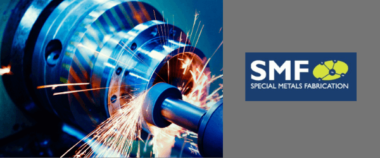
Why are refractory metals used?
Refractory metals have many uses that you may not have realised at first glance. Due to their supreme strength and exceptionally high melting points, it’s easy to see why they are a go-to option for those who want to use this durable and long-lasting material for their product.
If you’re caught in two minds about whether you need refractory metals for your project, then be sure to carry on reading this blog from Special Metals. We’re here to tell you some uses that you might not have considered and whether they apply to you.
Structural tubing and piping
In tubing and piping solutions, only the highest performance metals can be used. If this component faulters in any way, it can result in costly damages and a risk to the safety of those that are surrounded by these materials.
Molybdenum is usually used here due to it being cheaper than most other refractory metals, whilst still being resistant to the high temperatures that working in this environment brings. It is also corrosion resistant and has anti-friction qualities, making it a high-quality option for those that require tubing and piping.
Lighting and filaments
Tungsten is arguably the refractory metal with the highest level of performance in challenging conditions. It has the highest melting point, as well as one of the highest densities among the metals.
This means that it is the perfect metal to be used as a filament in lightbulbs and as a vital component of filament wiring. Tungsten metal has been a longstanding metal in lamps and light bulbs, with it being commonplace in the production of light bulbs for over a century. A filament of tungsten wire is used within the light bulb, which an electric current is passed through.
Nuclear reactors
Tantalum is the refractory metal that is the most resistant to corrosion. This is why it is popularly used in the field of medicine and surgical practices, including in nuclear reactors. The harsh acidic environment is where this kind of metal thrives when other types would faulter.
Jewellery
Niobium is frequently used in jewellery due to its attractive shiny appearance, which is commonplace on the very best jewellery around. It’s able to diffract light and display multiple colours, including blues, greens, purples, and yellows. It’s this aesthetically pleasing quality that makes it so important to jewellery.
If you’d like to find out more about the uses of this metal in particular, be sure to check out our dedicated blog post.
Zirconium is cut into gemstones and can also be cut into jewellery. It forms a stunning black coating when heat treated that is extremely scratch resistant, allowing your rings to last for the long term.
Aerospace
Titanium is one of the strongest metals out there, with this strength being one of the main reasons why it’s used so heavily in the aerospace sector. In more recent times, it has replaced aluminium in many high-powered vehicles due to its higher melting point, and exceptional resistance to corrosion. So, when you’re next on an aeroplane, you’ll be relying on the qualities of titanium to make your aircraft safe and able to perform to a high standard.
Get in touch today
Do you think you could benefit from any of these refractory metals? If so, contact our specialist team today and we can provide you with the information you need to make a well-informed choice.
Perhaps you could really do with a tungsten bar to be a vital part of your next project? Or you might be relying on molybdenum to help you achieve your desired results? Regardless, let us help you today.
We’re available to contact in multiple ways, including our online enquiry form where you can list your requirements with ease. You can also give us a call on +86-755-29936699 or email us at inquiry.mp@professionalmanufacturing.com and we’ll get back to you as soon as possible.

Leave a response
Your email address will not be published. Please enter your name, email and a comment.